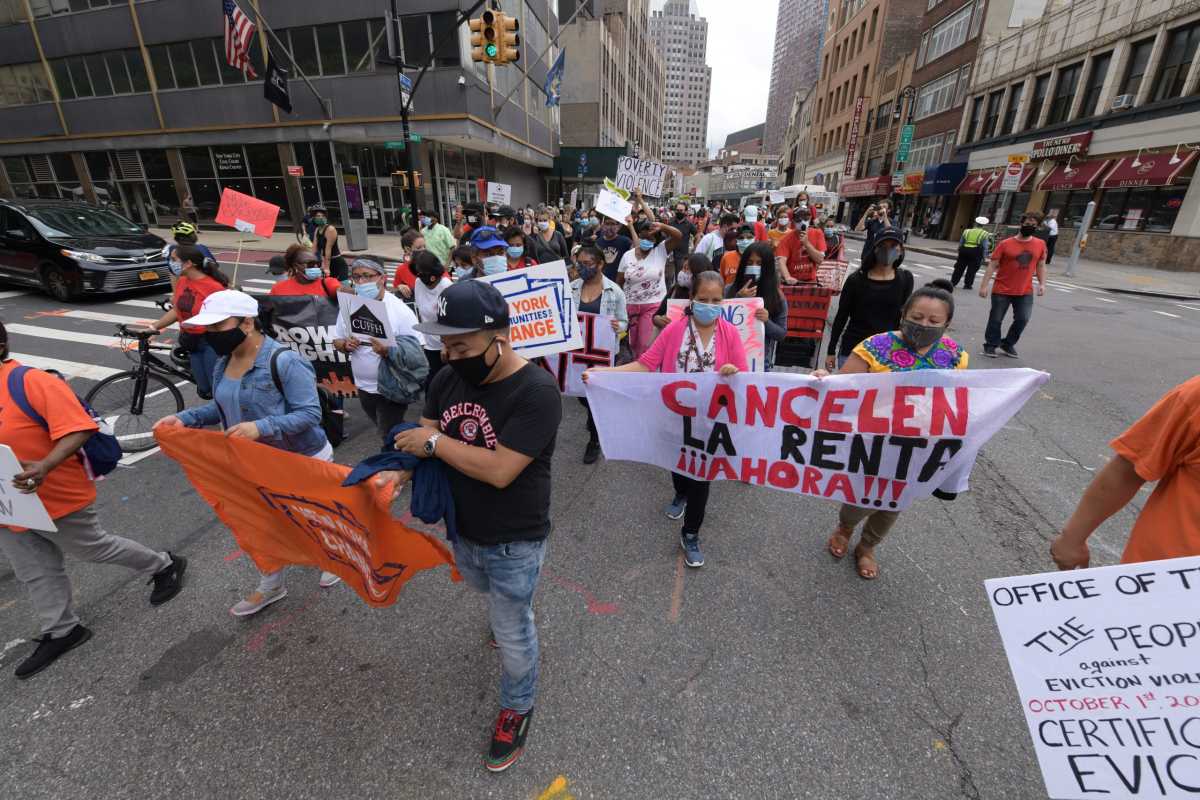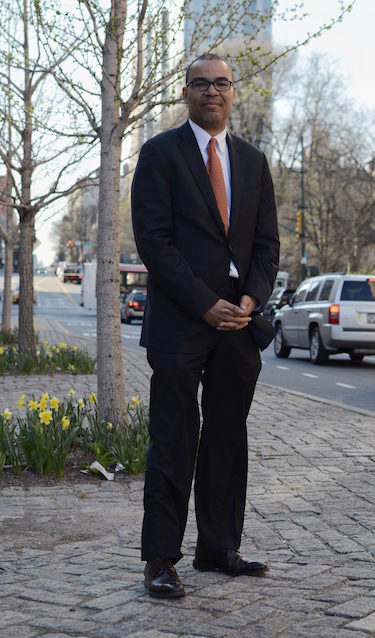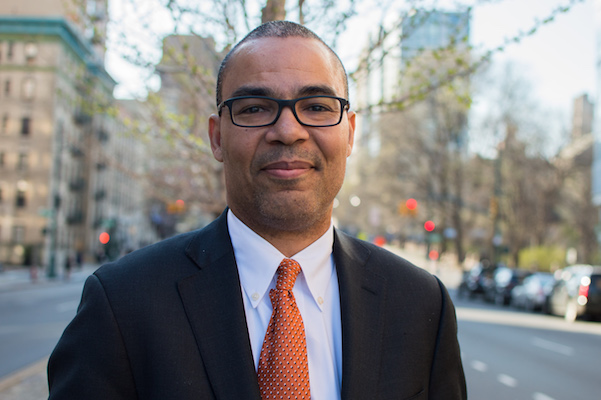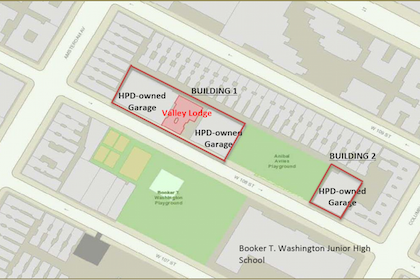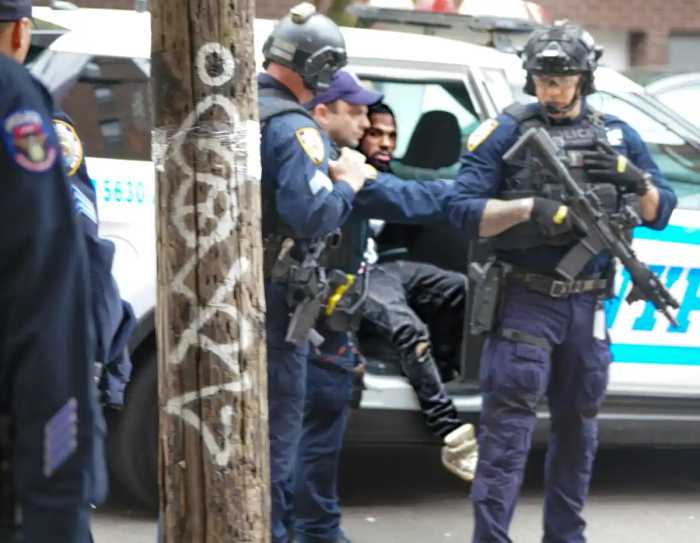With the clock quickly ticking until New York’s eviction moratorium expires on May 1, Manhattan City Council Member Mark Levine is looking to give tenants a legal boost in case their landlords look to throw them out of their homes.
Levine is formalizing for a final City Council vote two bills that would boost the city’s Right to Counsel local law, which he sponsored back in 2017. The Right to Counsel legislation ensures that low-income tenants who face eviction are guaranteed an attorney to represent them in housing court.
The program has been rolled out in only a few ZIP codes, but it’s made a stark difference in the outcome of eviction cases. According to Levine, 86% of tenants who had a Right to Counsel lawyer won their cases and remained in their residences.
Now, Levine hopes the City Council will pass new legislation (Intro. 2050) that will make the Right to Counsel program immediately accessible to every low-income New Yorker, regardless of where they live. His other bill (Intro. 1529) would require the city to work with tenant organizations to help educate renters about their legal rights.
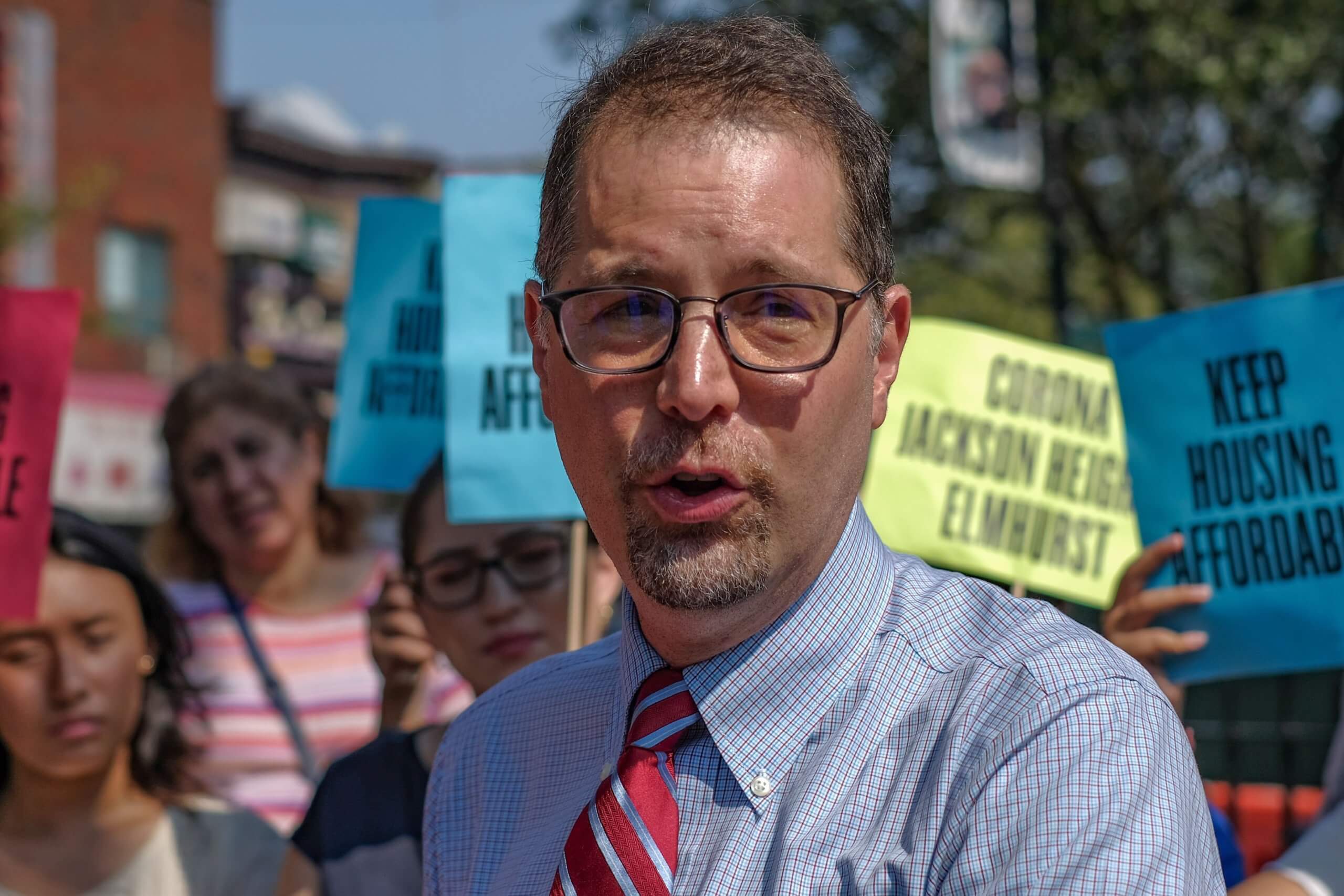
For Levine, passage of these bills — which were scheduled to be “aged” Wednesday night, a process that would finalize the legislation for a floor vote in the Council next Thursday, April 29 — is urgent given the current eviction crisis facing New York amid the pandemic.
“We may face the worst avalanche of evictions in the city’s history,” Levine told amNewYork Metro in a phone interview Wednesday. “It’s going to be critical that people have attorneys who can help ensure they get the funding they’re entitled to, the rent relief to help tenants fighting harassment and landlords who are trying to take advantage of this crisis.”
An eviction moratorium has been in place across New York for much of the health crisis, which began in New York City on March 1, 2020 — the date the first confirmed COVID-19 case was diagnosed here. Governor Andrew Cuomo went on to extend the ban multiple times, most recently in December 2020 — which prolonged the moratorium until May 1 of this year.
The moratorium did not cover eviction cases that were pending at the start of the pandemic; those were resumed back on Feb. 26, according to THE CITY.
But the crisis led anywhere between 800,000 and 1.2 million New York renters to fall behind on their monthly obligations, resulting in an estimated $2.2 billion in lost rent, as noted in a report by the National Council of State Housing Agencies. City Comptroller Scott Stringer told THE CITY in March 2021 that lost rent has hurt both landlords and the city’s coffers, with property owners reporting $600 million in back property tax payments during the pandemic.
The new state budget funnels more than $2 billion in federal funding in the American Rescue Plan toward tenant relief. Eligible tenants, namely those who make at or below 80% of the area’s median income, would qualify for up to a year’s payment of back rent and utility bills. Households deemed “rent burdened” — in which 30% or more of their income is devoted to their housing costs — would qualify for additional economic relief.
Levine said he’s heard estimates that up to 60,000 New Yorkers might be facing eviction post-pandemic — though he hoped that the influx of federal aid would help avoid many of those proceedings from ever being filed.
Still, if the eviction moratorium lapses on May 1, the city’s housing courts may quickly become inundated with fresh cases involving landlords seeking to throw out tenants who are behind on their rent.
All the more reason, according to Levine, for New York tenants to be able to easily access legal counsel and know their rights. Inasmuch as the eviction crisis is an economic problem, the legislator — who’s chair of the Council Health Committee and a candidate for Manhattan borough president — also sees the situation as a great public health concern.
“The quality of housing has been demonstrated to impact our health. This matters to me not only as a tenant advocate but as an advocate for public health,” he said. “The stakes are really high. We just cannot displace tens of thousands of people from their homes at this difficult time.”
Levine hopes the City Council passes the bills at the April 29 stated meeting, then quickly sends them over to Mayor Bill de Blasio for his signature before May 1.



